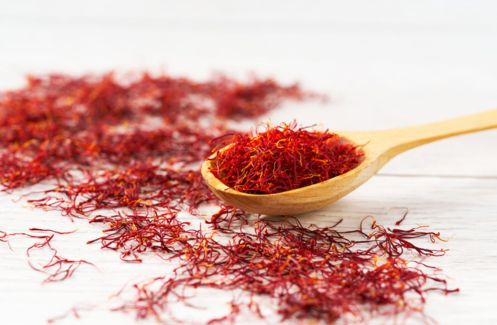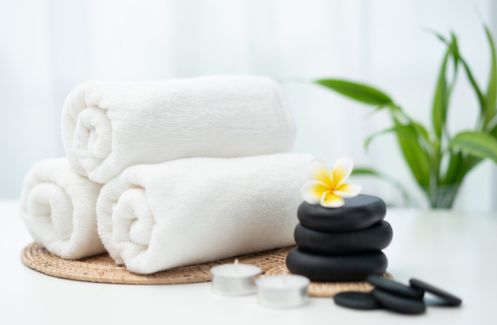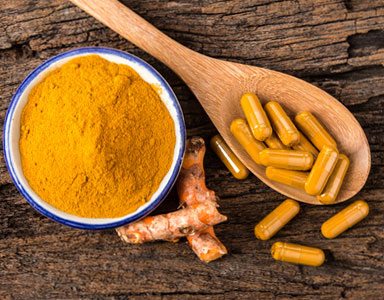Should you be pulsing your supplements? Clarissa Berry, Nutritionist for DIRTEA, reveals how temporarily pausing your supplements can prevent tolerance and optimise the benefits
Supplement pulsing essentially means taking supplements intermittently to prevent the body building up a tolerance, to reduce the chance of adverse effects or to optimise the intended benefits.
It usually involves taking a supplement for a set period of time, for example three months, before taking an intentional break while you notice any changes. During this rest period, an alternative supplement may be added, or ‘pulsed in’, or not.
Supplement pulsing can also refer to tuning into your body to assess when you might benefit from a supplement, or when you can do without it.
What are the benefits?
There are several benefits to pulsing supplements. Some supplements can cause the body to develop a tolerance when taken continuously over time, so that eventually more of the supplement is required to achieve the same effect.
Our bodies are incredibly adaptive – they are continually responding and adapting to new situations. The body is always trying to get to a place of equilibrium, called homeostasis in biology.
What this means is that the body sometimes creates adaptations in response to a supplement in an attempt to keep the body in a state of balance, resulting in a dampening of the effect of the supplement. This is tolerance. Pulsing or cycling a supplement can reduce the chance of tolerance buildup.
Supplement pulsing may also help to mitigate any adverse effects. Just like medications, supplements often have wide-reaching effects in the body, often beyond the purpose they’re being taken for.
taking a break from supplementation periodically, you can reduce the likelihood of adverse effects
In some cases, and in some individuals, certain supplements taken over prolonged periods can cause negative side effects. By taking a break from supplementation periodically, you can reduce the likelihood of adverse effects.
There is also an argument that supplement pulsing more closely mimics our natural rhythms, which is something I always consider in my own practice.
When you think about the natural variety in our daily diets and how we are exposed to different foods at different times of the year, it is rare that our bodies are exposed continually to any one nutrient or food.
It could therefore be seen as more natural and in keeping with the body’s natural rhythm to take a supplement intermittently.
Finally, there are many supplements that it is just not wise to take over extended periods of time, either because they interfere too powerfully with biological functions, for example supplements that affect hormone balance, or because they are intended to offer temporary support while underlying processes are restored.
READ MORE: Experts reveal 5 healthy supplements you probably don’t know about but totally should
How to pulse your supplements…
The exact method of pulsing will vary depending on the supplement, its intended effects, potential side effects, and your specific goals.
When taking nutritional supplements, it’s always wise to work with a health professional, like a nutritionist, naturopath or doctor, who can advise you properly by taking into account your individual circumstances.
Generally speaking, first you would need to define your cycle duration. A short cycle might be a few days to a week, for example a schedule of five days on, two days pause.
A longer cycle might last several weeks to months, for example three weeks on, one week off, or three months on, one month off.
start with just one supplement at a time so that you can identify the cause of any effects you may experience
You would also need to determine your supplement dosage, ideally with the help of a professional, and consider titrating your dose, which means starting with a lower dose and gradually increasing it to the full dose.
Always start with just one supplement at a time so that you can identify the cause of any effects you may experience. Consistency is also key.
When taking supplements, it’s important to tune into your body and how it feels. Nobody can know your body better than you, no matter how many degrees they have or lab results they’re looking at.
During both the on and off phases, notice how you feel, including any positive or negative changes when you start supplementation, when you increase a dose, and when you stop supplementation.
It can be helpful to keep a journal to record these and make adjustments to your protocol based on what you experience.
READ MORE: Feeling tired all the time? Boost brain power with these 7 super supplements
How it works in practice…
While many supplements can be taken continuously without adverse effects, there are certain supplements where pulsing may be considered due to the potential for developing tolerance, risk of side effects and individual health goals.
Some classes of supplements that are often considered for pulsing include:
Stimulants, such as caffeine. Prolonged use of caffeine is known to lead to increased tolerance and even reliance. Pulsing can actually maintain its efficacy and reduces the potential for side effects.
Nootropics. These are supplements that enhance brain function and interestingly includes both synthetic and natural supplements. Synthetic nootropics should absolutely be pulsed (and treated with caution) as they have a greater potential to cause side effects.
Natural nootropics, such as lion’s mane and bacopa monnieri, can also be pulsed to maintain optimal benefits, however these are considered safe over prolonged periods and often have cumulative effects when taken long-term.
I’m a big fan of DIRTEA’s Lion’s Mane extract powder, £39.99 for improving focus and general cognitive health.
Certain vitamins and minerals taken over prolonged periods of time can actually cause more harm than good
Certain herbal supplements that affect hormone balance, such as chaste berry, black cohosh, fenugreek and tongkat ali, are particularly potent and may benefit from pulsing in order to prevent a process called feedback inhibition whereby the body reduces its natural hormone production due to supplementation, reduce the risk of side effects and ensure intended benefits.
Other potent herbal supplements that are important to pulse include those that impact the gut environment, such as antimicrobials and binders.
Performance-enhancing supplements, such as creatine and beta alanine. These supplements can help to improve athletic performance, and while many athletes take these continuously, some choose to cycle or pulse them based on their training phases.
Adaptogens, such as reishi, cordyceps, ginseng and ashwagandha. Adaptogens are supplements that improve stress resilience and help the body to reach a state of balance, which means that they are generally considered safe to take daily.
However, some people choose to pulse them to prevent desensitisation or to align with stressful periods. DIRTEA’s Reishi extract powder, £39.99 is my favourite way to wind down and prepare for sleep in the evening, and due to its particularly potency it’s beneficial to pulse on and off in a cadence of three months on to one month off.
Certain vitamins and minerals taken over prolonged periods of time can actually cause more harm than good. For instance, single nutrients like iron or zinc taken in isolation can interfere with the absorption of other nutrients and even risk accumulation and potential toxicity.
I would like to emphasise that the decision to pulse any supplement should be made after thorough research and ideally in consultation with a healthcare professional or nutritionist.
DIRTEA is a unique range of powders and Super Blends which harness the healing powers of functional mushrooms, adaptogens and Ayurvedic herbs to naturally enhance your wellbeing.
Like this article? Sign up to our newsletter to get more articles like this delivered straight to your inbox.































































































































